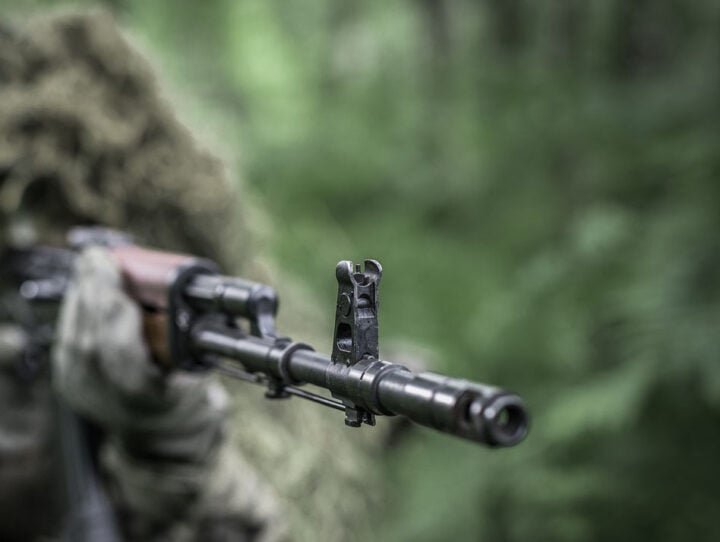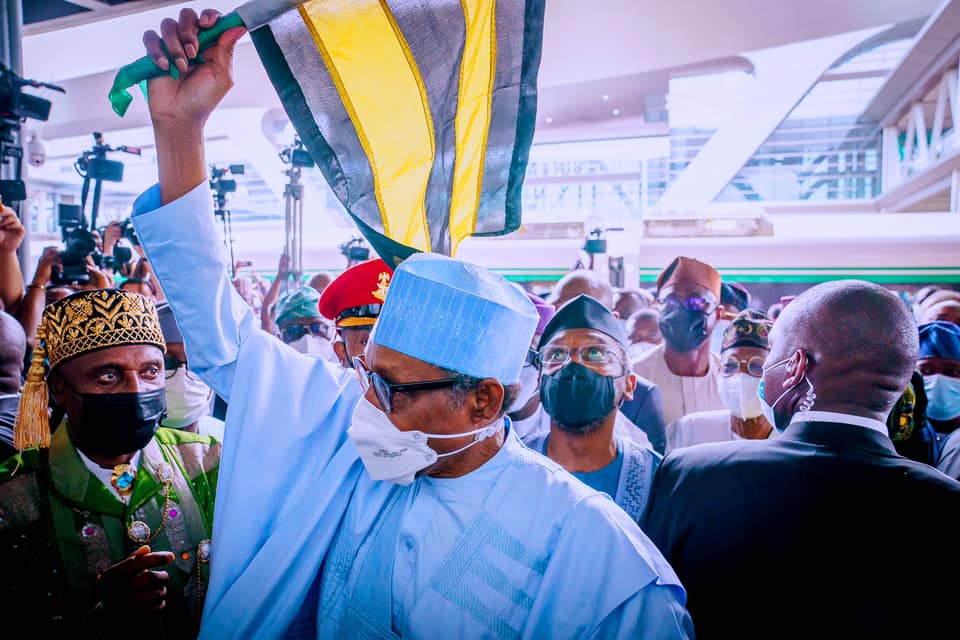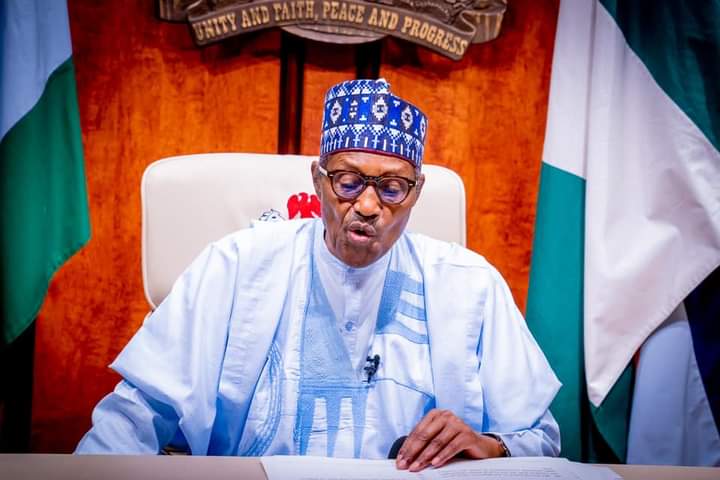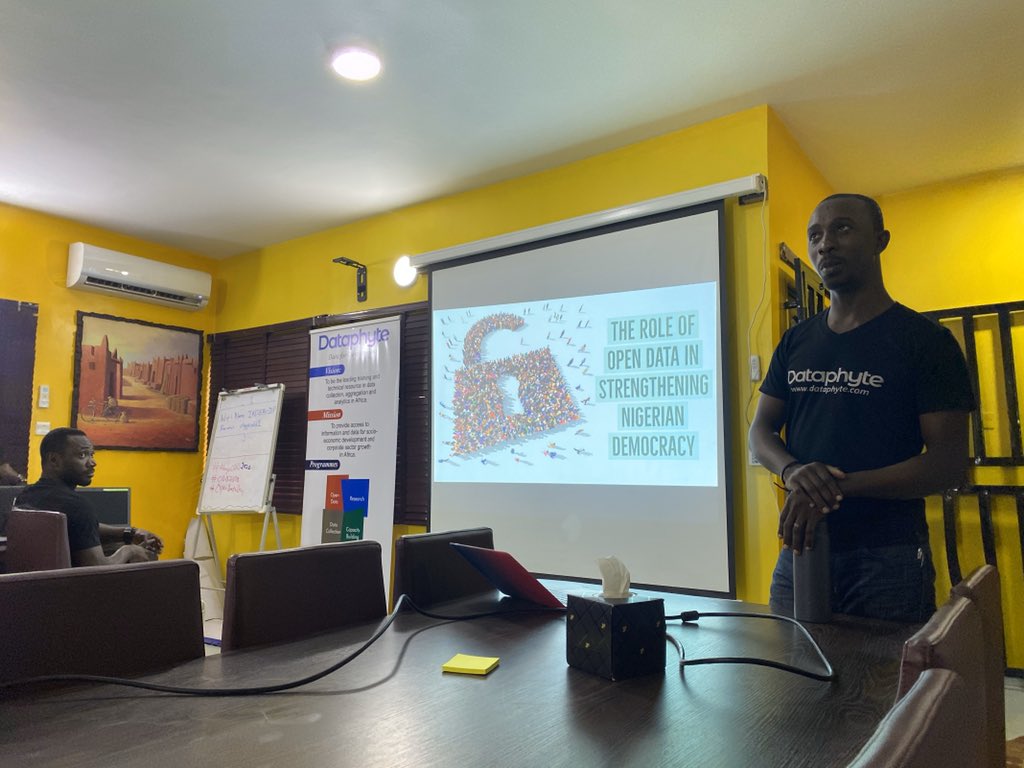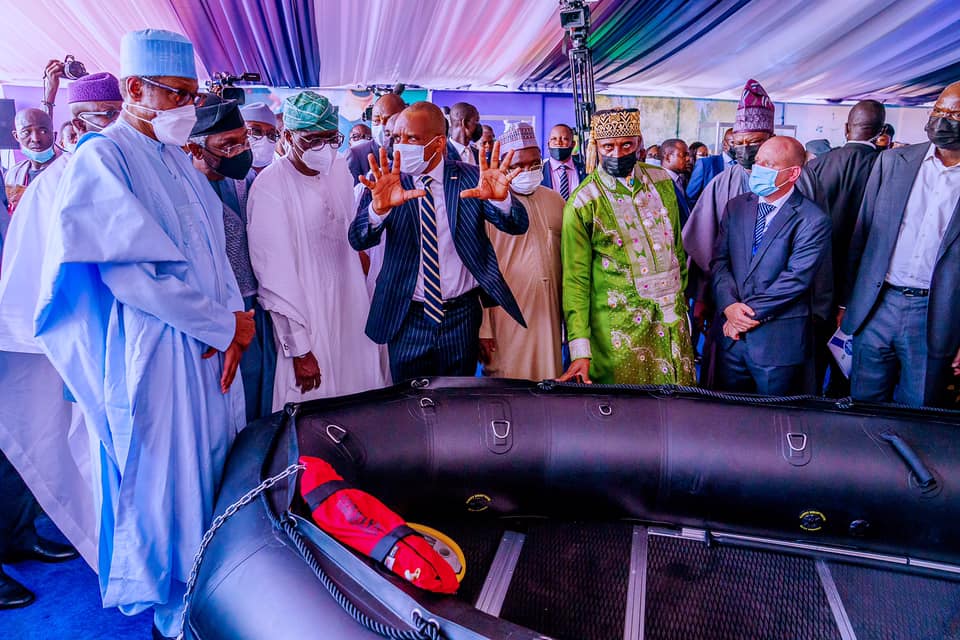File photo of a gunman
In February 2021, “Unknown Gunmen” killed 36 people in two attacks in northern Nigeria, with 18 people killed each in villages of Kaduna and Katsina states also burning down houses and displacing many in the process.
On the 6thof May 2021, the police in Anambra state confirmed the killing of two of its personnel by “Unknown Gunmen” who attacked and razed the Divisional Police Station in Obosi, Idemili North of the state.
From Friday the 7thof May to Sunday the 9thof May, 2021, 13 policemen in Akwa Ibom and Rivers states lost their lives in separate attacks – the culprits “Unknown Gunmen”.
On the 17thof May 2021, “Unknown Gunmen” attacked the village of Nasko in Magama Local Government Area of Niger State. During the attack, at least two soldiers were killed and one Chinese national kidnapped.
Advertisement
On the 3rdof June 2021, seven persons under the name “Unknown Gunmen” invaded the Orji area in Owerri and its environs and allegedly killed three persons in different locations.
These are just recent attacks, crimes and murders that cut across different regions and are being perpetuated by a seemingly faceless group of people popularly labeled as “Unknown Gunmen. Although the media, sometimes, tag them bandits or terrorists, apparently security agents seem to be reluctant in providing the true identity of these culprits or apprehending them. Hence, the onslaughts have continued unabated and the marauders, most often escape without capture.
The million dollar question is/are, who are these “Unknown Gunmen” that have continued to unleash terror in many parts of the country?
Advertisement
The Governor of Ebonyi state Dave Umahi recently attempted to answer this question while speaking on Channels Television’s Sunrise Daily and I quote him verbatim: “From what is happening in Ebonyi State, where the youth go to attack the Army, the Police, burn down INEC offices when these people confront the security agencies, they kill the security agents; sometimes the security agents will kill. We profiled them and saw that they were not “Unknown Gunmen”. They are our brothers, mainly from the South-East, most of them from Ebonyi State. They are never outside the country.”
Apparently many of these criminals are known but perhaps due to “political correctness” or ineptitude on the part of our security personnel’s, or reasons that are not known, their crimes are often dismissed and simply labeled as “Unknown Gunmen”, denying their victims and families of the justice they deserve. The inability to apprehend these “Unknown Gunmen” has undoubtedly led to the surge in crime and criminality across the country.
The spate of fear that has enveloped millions of Nigerians due to the protracted acts of these “Unknown Gunmen” is unprecedented. Interstate travelling by road has become a nail-biting experience with thanksgiving prayers and celebrations when travelers safely reach their destinations. While intra-state movements are filled with caution and anxiety with many looking above their shoulders. Even when under lock and key in our homes, the fear is palpable due to the menace of “Unknown Gunmen.”
The security situation is indeed very dire at the moment, even when many undiscerning people try to downplay it. The Global Terrorism Index (GTI) covering events in 2019/2020 ranked Nigeria in 3rdplace, describing the country as being one of those that could be classified as in a ‘state of war’. In the Global Peace Index ranking of 2020, Nigeria ranked 147thout of 163 countries, compared to 148thposition in the previous year.
Advertisement
Millions of Nigerians are currently internally displaced persons, students are being abducted from their schools and killed, farmers have been sent home not by the usual culprit – natural disasters, but by “Unknown Gunmen.” Policemen and women are being brutally murdered in the South-East, businesses are being destroyed and Foreign Direct investors are scared of coming into the country to invest and those already here have begun relocating. Boko Haram insurgents have continued their reign of terror in the Northeast, invading military bases and killing our patriotic soldiers and stealing their weapons that are not even adequate in the first place.
Despite what anyone says, the bitter truth is that crime, criminality, violence and socio-political disorder now permeate the length and breadth of the country. Whether you label them as bandits, hoodlums, insurgents, kidnappers, unknown gunmen or what have you, the reality is that these ruthless and dastard criminals have plunged the country into a tidal wave of crime and something needs to be done urgently or else the waves might just consume us all.
Other persisting questions that beg for answers are why are some state governors negotiating with these criminals instead of declaring full-scale war on them? Are these criminal elements so powerful that we have to beg them for our lives or pay ransom? Apparently they are being sponsored by certain individuals, but by whom? Where and how do they get the weapons they use in terrorizing ordinary folks like you and I? These disheartening questions are indeed endless.
It is however important to note that the current situation is not a time to neither politicize, regionalize nor trivialize it. Every region in the country is faced with this peculiar problem irrespective of creed, political affiliation or tribe. Many people seem to live in denial of the enormity of the security challenge we are currently facing. Some attribute the situation to certain tribes and regions while some at the helms of affairs denounces anyone that calls them out on their failure in addressing the hapless situation.
Advertisement
We need to begin to fashion enduring solutions not the knee-jerk/reactionary approach we’ve been employing. With a stretched-thin workforce and overarching insecurity, technology can be employed via gadgets and cameras mounted in public areas and a committed surveillance team set up for monitoring of activities and identification of criminals. A reliable database will also go a long way towards understanding crimes and their patterns as well as aiding in mapping out operational strategies to tackle insecurity.
I’ve always wondered why we cannot use telecommunication to track these “Unknown Gunmen” and other criminals perpetrating violence. I mean they often get across to their victims’ families to demand for ransom in the case of kidnappers, they surely use GSM phones for this purpose at least. Why can’t they be tracked through that?
Advertisement
Intelligence gathering and helpful information is vital in every security apparatus. However, our security architecture faces a serious lack of trust from the populace. Many of these criminals’ live among us and in many cases we know them but scared to alert the authorities. This is because in many cases, the criminals are being told who reported them after financial inducements. Inefficient investigations are carried out and such criminals are often let off the hook. Your guess is as good as mine as to what they would do to those who reported them.
It is extremely vital that our security sector improve coordination amongst its security personnel’s, win the confidence of everyday people and use every means possible to protect lives and property of every citizen as well as the integrity of the country. No excuse should be given nor should be accepted. The failures of the security architecture either by omission of commission to confront the security challenge has made it seem insurmountable. Nigeria needs to learn security lessons from the menace of “Unknown Gunmen.”
Advertisement
I invite you to follow me on Twitter and Instagram @hanneymusawa
Advertisement
Views expressed by contributors are strictly personal and not of TheCable.
Add a comment

